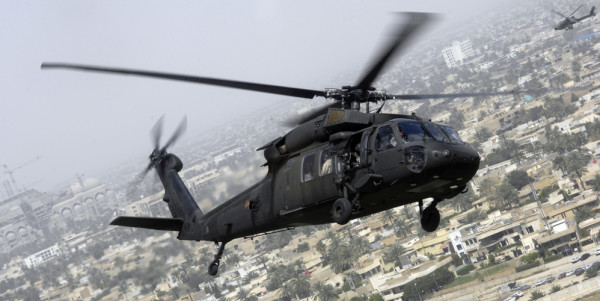

At the end of June, Lockheed Martin’s Sikorsky helicopter division signed a massive $3.8 billion Department of Defense contract for 257 UH-60 Black Hawk utility copters, destined for the U.S. Army and certain foreign military customers over the next five years. The contract, which included both the classic Black Hawk and its HH-60M MEDEVAC variant, includes opportunities for the Army to pick up an extra 103 aircraft, according to the Hartford Courant, a clause that would push the value of the deal as high as $5.2 billion through 2022.
The problem? The Army’s having some serious difficulty actually flying these iconic choppers.
Days before Lockheed Martin announced the new contract, a Pentagon inspector general audit revealed that the Army “did not provide adequate funding and training for H-60 pilots on the new equipment.” And if this problem goes unaddressed, the branch may face a shortage of up to 160 trained H-60 pilots by 2026.
Sadly, the Army has nobody to blame but itself for this problem. According to the DoD IG report, the shortfall in funding and training occurred “because Army officials did not agree which Army organization was responsible for funding and conducting H-60 new equipment training” — the various branch offices literally just passed the buck to one another. To correct the issue, the branch will require nearly $153 million more than currently budgeted for both training and new equipment for 1,390 Black Hawk pilots through 2035.
But training isn’t the only problem. The audit found that Army Aviation and Missile Command “did not effectively manage airframe condition evaluations for the UH-60 fleet,” with nearly 25% (460 out of 2,098) of the branch’s Black Hawk helicopters foregoing safety inspections and other mandatory evaluations between March 2016 and February 2017.
This problem extended down to the unit level, too. “Evaluators identified safety problems with some UH-60 helicopters that required the unit commander to ground (restrict flying) those helicopters,” the audit says. “However, the unit commander did not always allow evaluators to finish the evaluation of additional helicopters because he did not want to ground more helicopters if additional safety problems were identified.”
The Army wanted to have a fully modernized and upgraded fleet of 2,135 Black Hawks by 2035, according to the audit, but how the branch plans on squaring its new five-year billion-dollar contract with Sikorsky and its imminent pilot shortfall is unclear. Army officials did not immediately return requests for comment from Task & Purpose.
WATCH NEXT:
